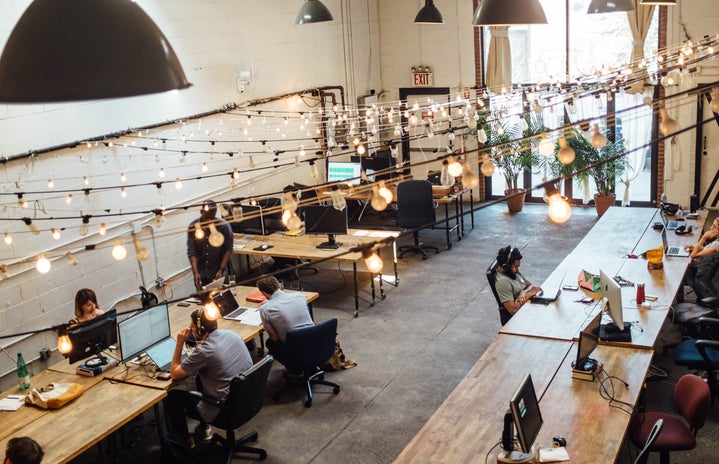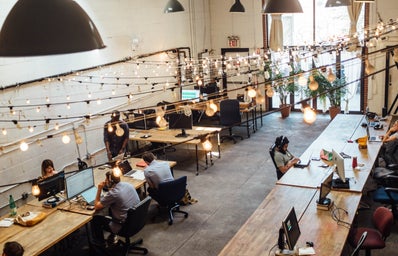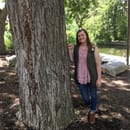I’ve battled more wars inside my head and heart than anywhere else. As a woman who consciously chose to follow a career in the STEM field, I was aware that I would be plagued by fears and feelings of self-doubt. Little did I know that I wasn’t alone. Humans of all backgrounds struggle now and then wonder whether they are meant to be where they are. It’s such a common behavior that it was given a name, the impostor syndrome.
First identified in 1978 by psychologists Pauline Rose Clance and Suzanne Imes and now present in 75% of adults in the US. The term is used to designate an internal feeling of being an intellectual phony, which appears to be particularly common amongst high achieving women. Phil McKinney describes it as a superpower to convince ourselves of something that isn’t true. And many women who experience this have incredible academic and professional accomplishments, yet they believe that they are not proficient and have misled everyone around them to think otherwise. Today, I want to share with you a group of impostors. Superheroines who, in the STEM field, have rose above the doubts and fears. And, powered by their passion to find solutions to the world around us, have shown us what we can all accomplish if we trust our true potential.
Airam Feliciano, Industrial Engineering
Airam remembers having that feeling creep into her head “I won’t achieve it,” especially as she embarked in her last coop practice. She was given the task to develop and code a tool for the company. One of her greatest challenges was that her actual “client” was in the Dominican Republic so she would have to make good use of her skills to keep her project afloat. She struggled with fears of failing, but kept pushing forward with the support of a colleague and the quality manager who truly believed in her. She persisted, in the end, she was able to deliver an automated quality report generator tool that works with only 3 clicks exceeding the expectations of all her peers. She shares with us that “through this experience (she) understood that the key is to overcome our doubts and believe in a world where we can do accomplish everything we set out to. The only rival that exists is us.”
Yaireliz Davila, Chemical Engineering
Yaireliz experienced a similar scenario in her first coop where she was also given the task to design some tools using a software that she had no experience using. She quickly realized that there was no established format and that they struggled explaining exactly what they wanted. At some point she confesses she felt “so frustrated and the only thing that was going through (her) mind was you’re not good enough for this coop and they should have given the opportunity to someone better than you.” However, she had not only self-taught herself various softwares, but was also able to deliver tools that they use to this day. She even had the opportunity of giving the engineers training to know how to maintain and modify their tools.
Valeria Santana, Chemical Engineering
Valeria shares with us that as a STEM student, competition can be overwhelming and that comparing yourself to others may continuously drag you into a position of self-doubt. She recalls that during Career Week, she would constantly wonder “Why bother? There are others that know more than me.” or “I don’t have experience. What can I possibly offer to the company without it?” She was continuously overtaken by feelings of doubt, anger and concern. She often wondered if she was following the right path. But she then decided to adopt the quote that has become her truth, “I can, and I will.” She says this helped her “develop enough confidence to exploit my qualities, without paying attention to what others had.” Also, she learned that she could grow from her mistakes and failures. In a period of two years, she has had opportunities to work on research both in and outside of Puerto Rico), had a COOP experience in a pharmaceutical industry, an internship experience in a global food processing industry and she graduated on December with a full-time job offer. And for her the key concept is that “as long as you believe in yourself, not even the sky is the limit.”
Jennyliam Rodríguez, Chemical Engineering
For Jenny her first coop experience was very scary. She constantly told herself that she would not be able to do things alone due to her lack of understanding of how the industry worked. So, at first, she found it difficult to seize her projects. She constantly feared she would fail in something or do something that would ruin the project. It became a constant stress and she limited herself due to her fears. Even though she had great ideas she did not dare to ask or challenge others’ opinions when something did not make sense. Nevertheless, little by little she managed to improve her confidence and thus started believing in her skills. She does acknowledge that still with everything she has learned “sometimes that feeling returns and the fear to start and take charge of new projects frightens (her),” but she always tries to look back at those moments when she felt the same and yet learned and did things well. To this day she was able to exceed the expectations she and her colleges I had of herself many times delivering great results.
Juleika Villarubia, Chemical Engineering
Juleika remembers that as she grew up, like many other little girls, she was “encouraged to be delicate, dress-out as princesses, and be good cookers.” And even though princesses are great, she often struggled with the fact that society wouldn’t encourage her to “be a superhero helping fight a problem, looking for better solutions.” She believes the social construct of women being “princesses” is an image that is very difficult to destroy even more if you’re in a STEM career. She, for example, as a Chemical Engineering major had always doubt what she was capable of. And constantly feared when dared to apply for a new opportunity. But she shares that when she realized that we can be stronger than what we’ve been led to believe was the exact moment that her career changed. She acquired different research opportunities in campus and got selected to participate in a year COOP with Johnson & Johnson. She is part of the executive board of the ASEE, an amazing organization that looks to foster education in engineering at all levels. She’s been recognized by her commitment and merit and has even been sponsored by Great Minds for the HENAAC Conference in California. Where she didn’t disappoint, she became part of the Northrop Grumman team and won second place at the College Bowl. She reveals that all these experiences have shown her a better, stronger version of herself and she is sure that they will lead to her becoming a great chemical engineer. It is crucial to point out that all she had to change was how she saw herself. Changing that perspective of her in her career helped her believe in what she is capable of. And this has been the fuel to the amazing fire she has become finding these amazing opportunities and experiences in the field while constantly helping others.
Maricely Ramirez-Hernandez, Chemical Engineering
Maricely confesses that she thinks that the impostor syndrome is something that has been with her since her early years of being an undergrad. For her it’s been a long roller coaster with many ups and downs. She has managed to stay afloat but says that “if there was anything (she) would do differently it would be to find support groups and talk about these things.” She acknowledges that “anxiety and doubt can be crippling if you are handling them alone and deter your potential.” And she’s missed on several opportunities because of self-doubt failing to wonder “what if I am good enough?” Her latest accomplishment was when she won 2nd place in an international start-up competition. She remembers feeling incredibly proud the moment they announced the finalists especially proud because her project was at a much earlier stage. She wants us to push ourselves to celebrate our wins because even if sometimes it can be hard, “looking back to your accomplishments can help you look forward.” She highly recommends keeping a planner and looking back on it to see what you’ve accomplished. “You did not come all this way to just stop, so use it as fuel!”
Catherine Castro, Chemical Engineering
Catherine often struggles with feelings of self-doubt. She accepts that even though every year her accomplishments keep occurring, her doubts rarely leave her side. This is always making her push harder towards her goals. While in NASA she had the opportunity to make a great contribution by working in a project towards the development of a new generation of batteries. She hardly accentuates her accomplishments, not normally feeling that she is deserving of praise. Yet everyone around her can clearly see just how amazing she is as a person and what she does. To the point that she was selected to appear in an article about empowered women from diverse backgrounds to make it to NASA. She is continuously pushing herself to be better and invites us to believe in the amazing things that we can do when we work towards growing every day.
Amelinés Méndez, Biotechnology/Mechanical Engineering
Amelinés remembers being scared as she began her COOP in Lilly Del Caribe, Inc., as she contemplated her project and realized she had never performed a protein isolation or worked with the equipment she was assigned. She wondered whether she would be able to succeed, but she was also determinate to do a good work. So, she challenged herself started to learn and asked for feedback when needed. Thanks to her persistence and rising above that initial fear she was able to deliver a work of quality and give a good impression to her supervisors and colleagues. She invites us to embrace the quote by George Addair: “Everything you’ve ever wanted is on the other side of fear.”
Maritza Cruz, Chemical Engineering
Maritza remembers being a third year student and being terrified of applying for a COOP program. She questioned her preparation for the tasks she might be assigned and her ability to conduct a good interview. At that time she doubted herself a lot. Until one day, one of her friends insisted that she should dare go through that experience. Her trust fueled her own and made her feel she had the potential to do it. She dared freeing herself and her potential and was selected for a year working in the pharmaceutical industry with Lilly of the Caribbean. For her it was a rewarding experience, full of learning and self-confidence. Though, she still continues to struggle with those thoughts that say “we are not enough” or “I dare not.” She believes it is a matter of “giving us love, trust, self-will and teaching ourselves day by day that if we can achieve everything.” For her we are “powerful women who have a world to go through where we will all collaborate to be successful.” She invites us to dare to grow and flourish.
Paola Baldaguez, Chemical Engineering
Paola had a very particular experience. She worked in a lab where every other member was male. For her this was a very intimidating environment at first because, apart from being the only woman in the lab, she was the only Latina. This was also the first time she had an internship outside of Puerto Rico. She couldn’t shake the feeling that she was an alien in that lab. But despite everything, she rose through the pressure and managed to synthesize a polymer derived from sugar that possessed elastomeric properties. Showing not only that she is academically apt, but also that she won’t let her fears hold back her passion for science. Her results made her win the third place in the poster competition of the Institute of Chemical Engineers-College of Engineers and surveyors of Puerto Rico 2017. And she wants us to know that “being the only woman in a place does not limit you, in fact, you should be proud to be creating a mark and contributing to the diversity of gender.”
Yazeli E. Cruz Rivera, MS
Yazeli is a former graduate student of the Industrial Engineering program here at UPRM. In her case she was the first person in her family to study engineering which made her university network basically nonexistent and initially she experienced going through many situations where she didn’t feel enough. One that is carved into her memory is her first co-op. Then, she was 22 and had landed an opportunity working in a manufacturing line. She remembers being looked down by her coworkers because of her youth and gender. No one took her seriously and used to say things like “this one is not going to last long” making her feel very frustrated. She confesses that she “had to work at least 3 times as hard as a normal person would,” but due to her strength and persistence she earned their respect, trust and even their friendship. She acknowledges that the “most important part of overcoming the feeling of not belonging is surrounding yourself.” For her a key part of overcoming this type of feelings was joining the Applied Optimization Group led by Dr. Mauricio Cabrera Rios. Thus, growing as a student and professional.


